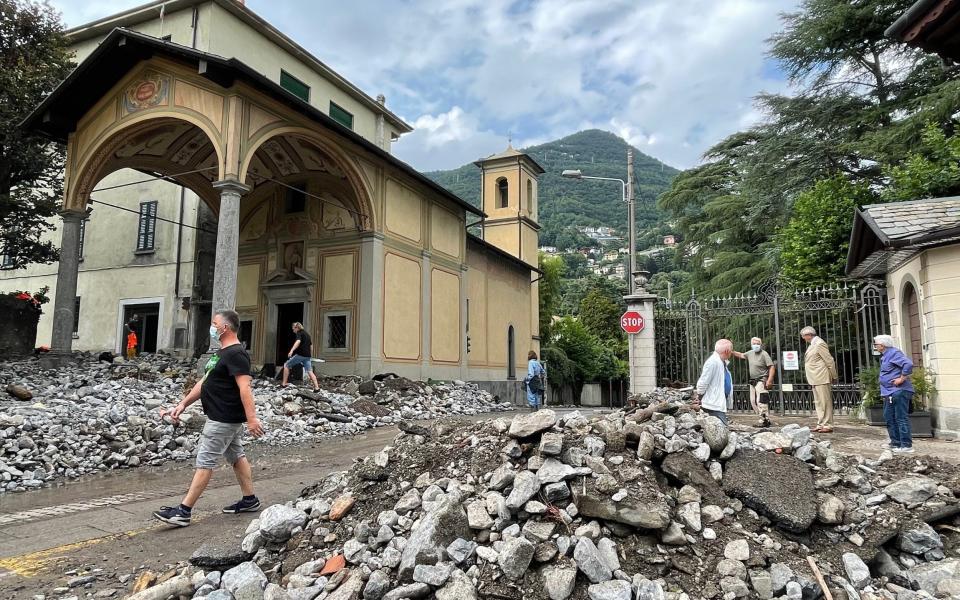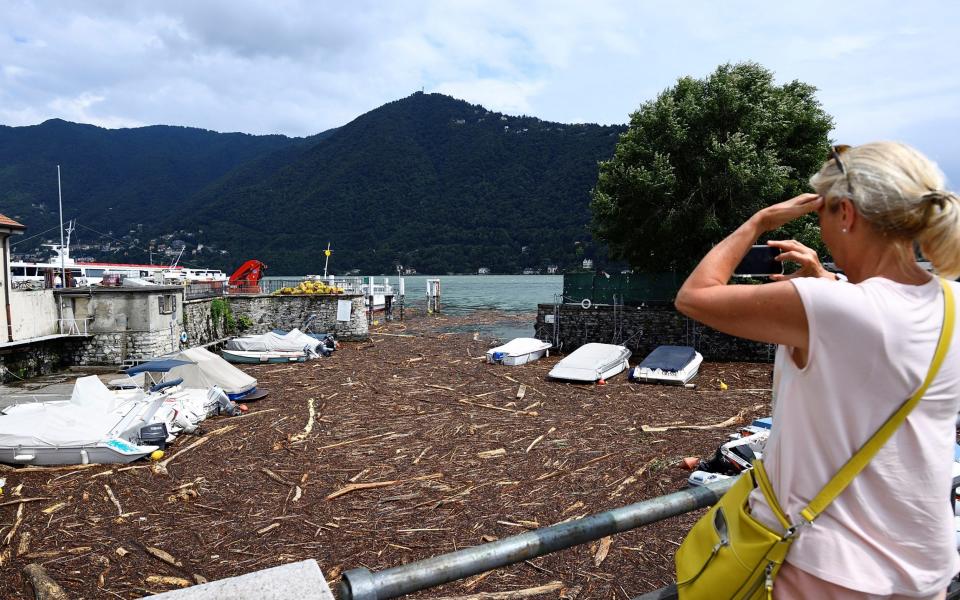More than 60 people rescued after Italy's Lake Como hit by mudslides and floods

Towns around Italy's Lake Como were hit by mudslides and floods on Tuesday in another example of extreme weather phenomena that an agricultural lobby said had intensified in recent years.
Italian firefighters carried out more than 60 rescues after storms wreaked havoc around the picturesque lake ringed by mountains in northern Italy.
They included bringing to safety an elderly woman blocked in her home, as well as a person with a disability and a caregiver isolated by a landslide. No deaths or injuries were reported.
In Brienno, on the lake's western shore and the hardest hit town, 50 residents were blocked in their home when a landslide caused a gas leak. And further south in Cernobbio, firefighters evacuated a condominium threatened with flooding.
Sul lago di Como sta succedendo un disastro. Siamo isolati, tutte le strade del lago sono chiuse per tantissime frane, i paesi sono invasi dal fango, molte famiglie sono sfollate. Diluvia ormai da tre giorni. pic.twitter.com/hGGkpz6QIi
— Luigi Mastrodonato (@LuigiMastro_) July 27, 2021
"We are facing in Italy the consequences of climate change, with a trend toward tropicalization and the multiplication of extreme events," agricultural lobby Coldiretti said, citing more frequent, sudden and violent storms, short and intense rainfalls and rapids changes from sunny skies to storms.
Coldiretti estimates 14 billion euros of damage over the last decade to agriculture production, buildings and infrastructure is because of climate change-provoked events like flooding and landslides.



The storms devastating Lake Como come a day after hailstones “as big as apricots” caught out hundreds of terrified motorists on Italy’s busiest motorway, smashing car windows and bringing traffic to a standstill for hours.
The hailstorm, lasting only a few minutes, struck at around 3pm on Monday on the stretch of the A1 connecting Parma to Fiorenzuola, around 100 kilometres south-east of Milan, forcing drivers to stop in the middle of the carriageway as pellets smashed down onto windscreens.
In some cases, side or back windows collapsed altogether, leaving car occupants fully exposed to the elements. The affected section of the A1 was closed northbound until after 7 pm, causing tailbacks of up to 9 kilometres, while damaged vehicles had to be towed away.
Local authorities in Fidenza, the town that was worst-hit by the freak weather event, also reported being hit by a tornado and winds of up to 43mph that felled trees and destroyed rooftops.
Hail also damaged plantations of tomatoes, watermelons, beetroot and of other crops across the northern region of Emilia-Romagna, causing millions of euros’ worth of damage, according to farming lobby group Coldiretti.
“There are some who saw ice pellets destroy up to 100 per cent of their year’s work in a few minutes, with tragic consequences,” they said.
Italy is often prone to natural disasters, including floods and landslides, but experts say they are becoming more frequent due to the effects of climate change.
Citing data from the European Severe Weather Database, Coldiretti said summer hail storms have more than trebled compared to last year, with 386 so far compared to 120 in 2020.

